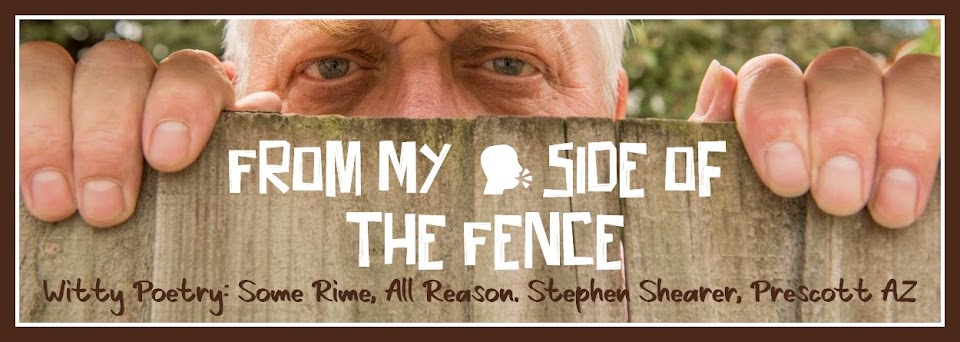 In each life that we individually represent, every soul has his own true intent to do right. By every action that every man makes, his intention is to adjust his world and often others' worlds for the better.
In each life that we individually represent, every soul has his own true intent to do right. By every action that every man makes, his intention is to adjust his world and often others' worlds for the better. Such a realization is in opposition to most everyone's learned beliefs. We have been taught that there are good people with good actions and that there are bad people with bad actions. There are the "chosen" and they are the heathen. But look around you; the "good" people are not always performing favorably, and the "bad" people are realizing their actions.
What originates in one's thoughts will always produce an action. Be it destruction or creation, every person has predetermined by his thoughts that his next decision will bring about favorable results. Whither he is correcting a spelling error or dropping the H-bomb on Hiroshima, inside of that person's present values, his intent is to bring about better conditions.
But results do not always a line with our suppositions. There are times when an originally good action will cause personal damage - often extending to create distress in other people's lives. The outcome that we had supposed can become rearranged into what may not have been intended. It may have evolved wrongfully from either the propagator or from his outer world.
An addict that is relieving his mental anguish by inducing harsh chemicals into his body may bring upon himself sudden death. And what if he's driving at that moment ... ? Did he make a wrong decision? Was he trying to bring about favorable results?
When one looks back and sees his folly, the action is often labeled as a "bad" decision - yet at that moment when he performed it, did he not construe it as "good" ... as something that would bring a betterment? If and when he learns from those mistakes and readjusts his values, all of his future decisions and his future experiences become effected favorably. Through realization of true and universal truth, we can relieve ourselves of future pain and undesirable situations.
When we notice the results of a misguided decision, a counter action will always result. In due time, we must arrive at the junction of choice. Do we condone or dismiss; our personal, our moral, our collective responsibility? Do we condemn self? Do we place the blame on portions, on persons of our outer world?
Detrimental as it is, often we remain unchanged or implement a non-correctional change. For most of us, change will not happen unless a significant amount of pain or remorse is inflicted. In accord, we need to relate it properly to the unfavorable action. How much greater the alteration when real facts are presented ... when true cause and effect is revealed ... when opportunity is proposed rather than chastisement!
Aside from our justice system (which also could use alteration) what I see is that the "old school " method of correction and punishment, which entails alienation from the true cause and effect, does not bring about progressive reformation. The wrong doer or his authority feels the need to implement pain or regret so as to establish a mental conviction. While imposing traditional absolutes upon the guilty party will alter detrimental acts, this type of discipline cannot guarantee a conversion effect. Discipline and punishment also require implementing enforcement which applies unmerited stress to all involved. Also, a policing force will be required upon the wrong doer with corrective follow up procedures - condemnation, judgment, constraint and discipline, and more and more alienation from true cause and effect.
On the other hand, when reinforced values with choice is presented, the alteration of action will also give opportunity towards all parties involved. The convicted realizes his undiscerning thoughts and the teacher (not the officer) obtains the chance to affect a person's future. Only through realism with concern can a person be shown his need for thought process alterations. It will then become his responsibility to choose his actions ... as it always has been. The responsibility of the society need only be concerned for the safety of that society.
As I have stated, each of us has his own true intent to do right. But yet, not all of us contain the same acceptance, nor the original meaning of these two simple words: "true" & "right". The definition of many words can be conditional, being subjected to our own circumstances. But the word, "true" in it's own sense can have only one definition, only one understanding, and only the same universal, original meaning.
Bearing that the word, "true" can have only one solitary definition, then the word, "truth" would also have only one solitary, universal description. As so, if one was to believe in a truth that is conditionally true, that truth is a misconception. It is not descriptive of true truth. His understanding of the word "true" is not universal. Through his mis intent or his presumptions, he will be open to deception - and deception often leads you into experiences beyond your intention.
"When you are deceived, you do not know that you are deceived - because you are deceived."
We people of the earth are not exempt from deception. But the more we gravitate our thoughts and our actions towards truth, towards realism, towards true cause and effect, the less susceptible we are to deception. The less susceptible we are to deception, the more we operate from our true intentions. And when we perform out of true, unmasked intentions, we will enable the people we come into contact with - as well as be enabled ourselves.
What could hold more importance in this life than to commit ourselves to truth - even in the misdemeanor, "not so important" areas?
orig write: 8/28/2005
revised: 5/11/2006

No comments:
Post a Comment